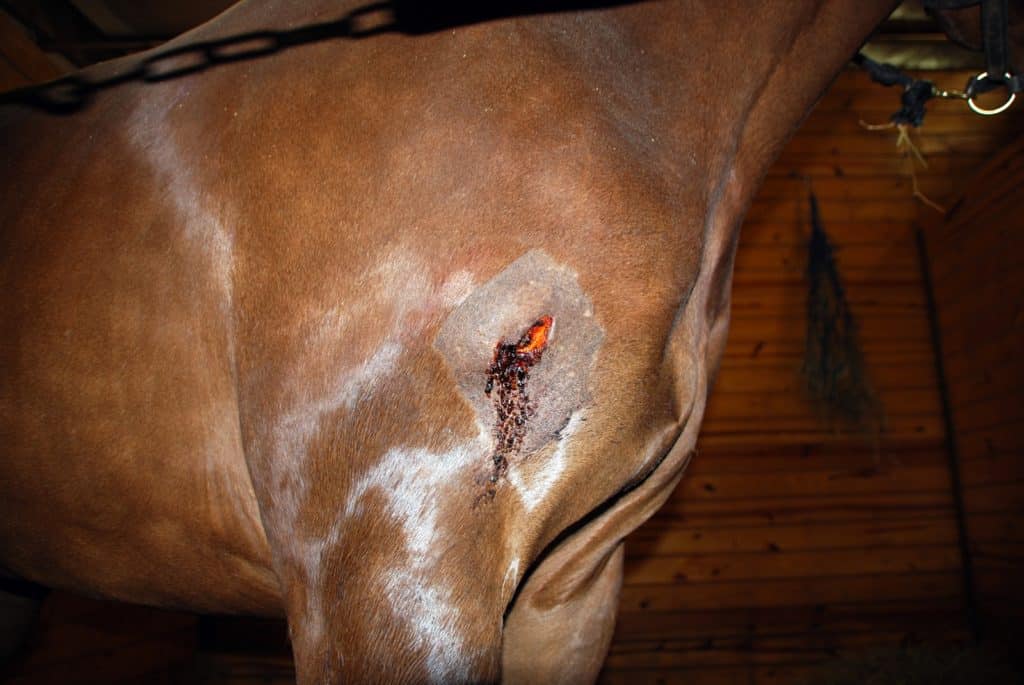
Preventing Problem Behaviors During Veterinary Procedures
Here’s how vets can carry out five common mildly aversive procedures using learning science and behavior modification techniques.

Here’s how vets can carry out five common mildly aversive procedures using learning science and behavior modification techniques.

Cytology allows vets to correctly diagnose a corneal ulcer’s underlying cause and institute appropriate therapy.

Removing the ovaries won’t fix other issues, from static shock to bladder adhesions, that can make mares behave badly.

A 15-minute tourniquet application was sufficient to achieve peak synovial amicacin concentrations in the coffin joint.

Advances in how vets manage sepsis, as well as incorporating preventive strategies for laminitis, are leading to improved outcomes.

Cornell researchers found that factors secreted by mesenchymal stromal cells might help fight bacteria in skin wounds.

Eye specialist Dr. David Wilkie covers ERU (aka moon blindness) clinical signs, causes, exams, treatment, and more.

During AAEP’s Kester News Hour, Dr. Rob MacKay reviewed his favorite studies of 2017, covering EPM, EHV, SAA, and more.

A “GIP” antagonist could provide an alternative way to combat metabolic disease in equids, researchers found.

This confirms the need for good hygiene within vet hospitals to prevent MRSA spread between veterinarians and horses.

Dehydration, fitness, and breeding can lead to specific challenges when treating colicky horses during endurance rides.

Both anti-inflammatory drugs reduced fecal microbial diversity, which could negatively impact horse health.

Researchers compared foaling prediction methods and recommend using a combination of available techniques.

Ejaculate with less than 20% urine contamination might be suitable for freezing without centrifugation.

A closer look at two melanoma “vaccines” under investigation and being considered for USDA approval.

This can pose a problem for mare owners working with a limited breeding window due to the short lifespan of the mare’s oocyte and the stallion’s sperm.
Stay on top of the most recent Horse Health news with
"*" indicates required fields